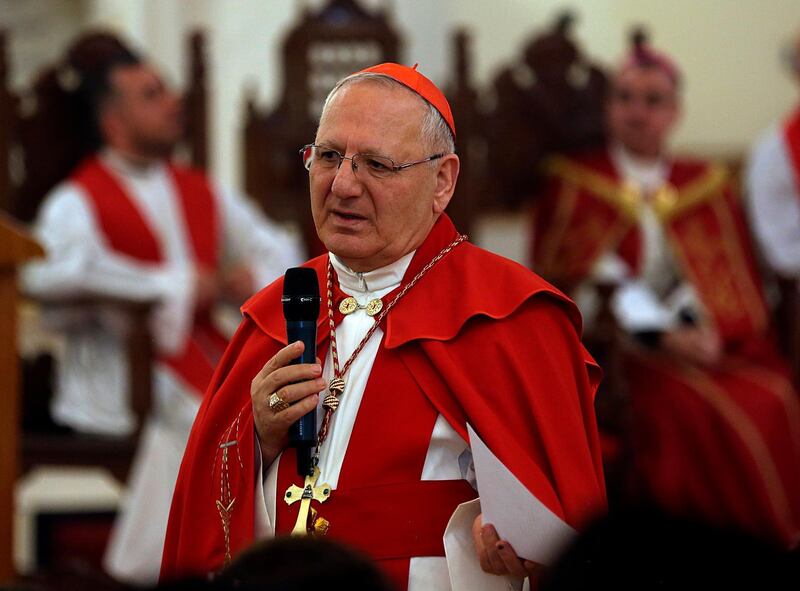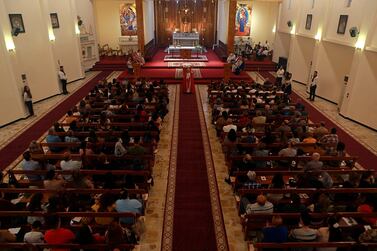Nearly 25,000 Iraqi Christians have returned to their homes in Qaraqosh over the past two years and were able to celebrate Easter last weekend, the office of Iraq's top Cardinal said on Wednesday.
Also known as Bakhdida and Al Hamdaniyah, the town on the Nineveh Plains in northern Iraq was once home to 50,000 Iraqi Christians, making it the religious minority's largest community in the country. But in August 2014, ISIS overran the town, forcing the community into exile.
ISIS burned churches in the town, defaced icons and scrawled graffiti to the effect that Christianity was finished under the extremist group's rule. By the time Qaraqosh and other Christian towns in Nineveh were liberated in October 2016, much of their infrastructure was in ruins and a third of their former inhabitants were dispersed as asylum seekers overseas.
But in the past two years thousands of Iraq's Christians have returned to their homes, according to Cardinal Louis Raphael Sako, Patriarch of Babylon of the Chaldeans and head of the Chaldean Catholic Church.
"An estimated 25,000 people have returned to Qaraqosh," Cardinal Sako's office told The National.
Figures in other prominent towns such as Bartella are still unknown.
Although Christians celebrated Easter in Qaraqosh without fear of persecution, many remain anxious about the future.
"During the last 15 years, we have lost the majority of our community," Cardinal Sako told The National. "One million people have left the country, 1,225 have been killed in various violent incidents and 120,000 people were displaced from Mosul and Nineveh."
The community once had around 1.5 million followers in Iraq but that number has shrunk to approximately 500,000 today, Cardinal Sako said. Without a census, accurate data is not available, but other groups estimate there may be as few as 250,000 Christians left in Iraq.
Fears over security and lack of employment opportunities are still preventing many from returning home, the Cardinal said, even though Baghdad declared victory over ISIS in 2017.
“Security and stability should be provided by regular Iraqi army and police rather than militias,” he said.
The militias, also known as Hashed Al Shaabi, were formed in 2014 to assist Iraqi forces defeat ISIS but have since been accused of exploiting their positions accused of various human rights violations against minority groups in the country.
But these challenges did not stop Christians from showing up for Easter Mass last weekend to celebrate their history.
“They feel more than happy to practice their Easter traditions as they inherited it from their ancestors,” the Cardinal said. “Awareness via media and religious platforms will play a role in having an open minded nation who appreciates co-existence and learn how to turn the page.”
Despite the formation of a new government last October, the status of Christians remains “uncertain” the Cardinal said.
The “constitution should be re-written to maintain justice, fairness and equality,” he urged, adding that it will enable Iraqis to be treated as equal citizens regardless of their faith or ethnicity.
“The constitution should not be based on Sharia,” he said.
In addition to the security concerns, Christians in Iraq are struggling to find employment, enrolling in education and having access to public services such as water and electricity.
Despite the challenges that Iraq has endured Cardinal Sako believes the future looks “promising”.
“We believe that no matter how discouraging are the chances to achieve stability in this region, we are firmly convinced that the future is promising, due to our persistence in strengthening life’s respect for human and environment, as well as promoting co-existence and peace.”







